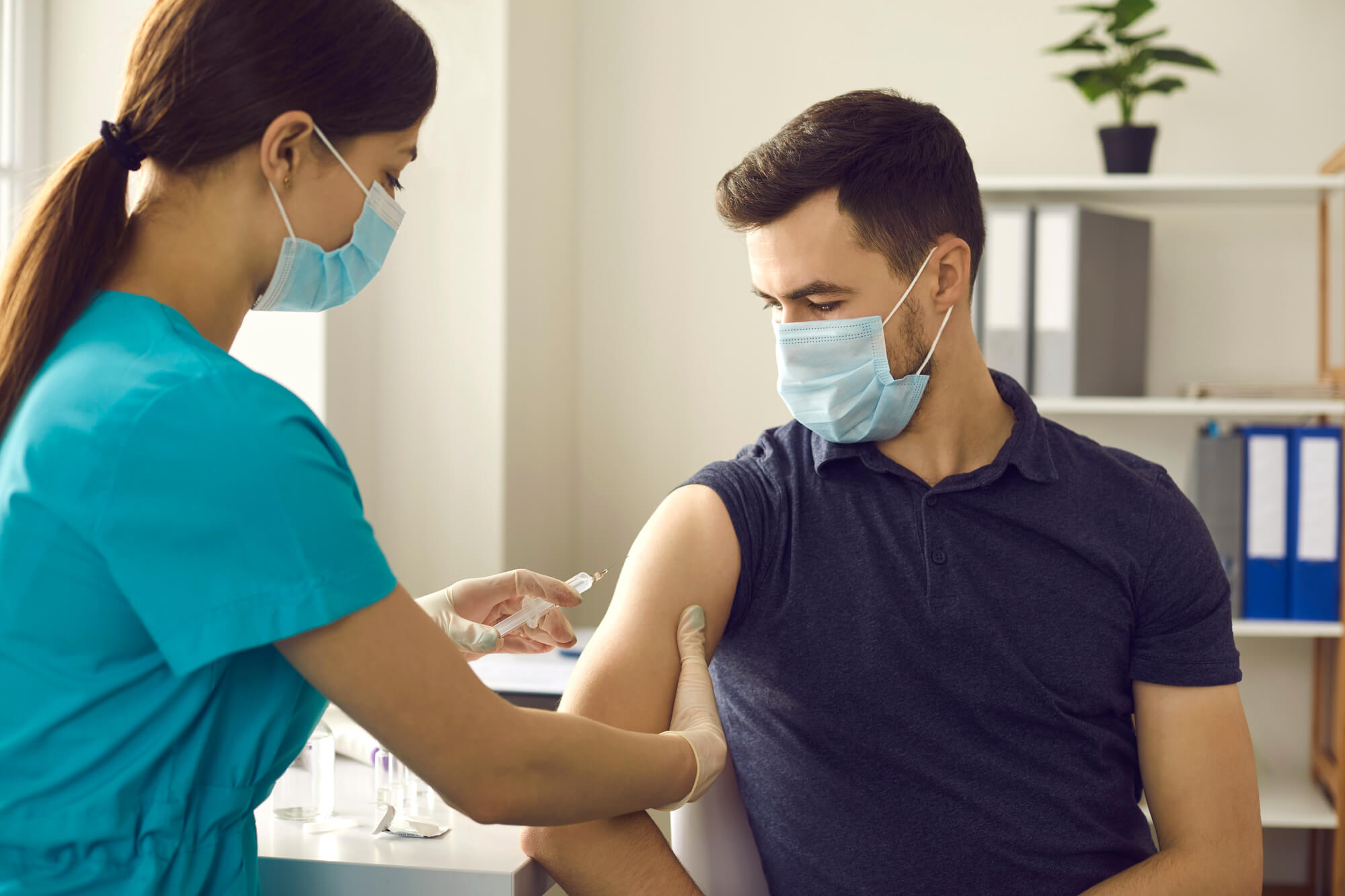For those of you who are fans of the NBA and follow the Utah Jazz, you may realize that a watershed moment occurred on March 11, 2020. Rudy Gobert, All-Star Center for the Jazz, tested positive for COVID-19. He was the first athlete in a major professional sporting league to test positive. Leading to the cancelation of the game they were to play against the Oklahoma City Thunder that night. A cascade of cancelations followed. Games, schools, restaurants, and workplaces closed as the reality of the pandemic swept across the country. Gobert’s positive test marked the day that changed America.
A year has passed. Some things in life have returned to a level of normalcy, but others are vastly different. We have all had limitations and restrictions on us that have affected work, school, family relationships, and other social interactions. There have been lives lost to COVID. Others changed forever. We are all asking; when will we get back to normal? I don’t have a firm answer for that one. As disappointing as that may sound, there is hope that we can eventually return to something that more closely resembles normal.

Getting vaccinated against COVID-19 is likely the best chance we have to push back the tide of the current pandemic. The vaccine has already led to a dramatic decrease in severe illness from COVID-19 in skilled nursing facilities and hospitalization rates, but we have a lot of work yet to do. Vaccines against COVID-19 are being distributed in communities across the globe. More and more people are becoming eligible, beginning with the most vulnerable.
I have encountered many questions about those considering the vaccine for themselves or loved ones. Many have questions about safety and efficacy. The following are a few of the more common questions, answered with the most up-to-date information I could find available.
Question 1: Is the vaccine effective?
- The current data shows that the vaccines against COVID-19 are very effective. Most studies have shown rates of effectiveness to be 70-90+ percent. These rates are better than those of many other vaccines that we currently use against other infectious diseases. Overall effectiveness and duration of protection continue to be studied, but initial results are very encouraging.
Question 2: Will the vaccine affect fertility or pregnancy?
- There is no evidence or theory to suggest that the vaccine harms female or male fertility. Fertility experts have repeatedly recommended vaccination.
- The vaccines do not enter the nucleus of the cell. The cell is where genetic material is stored. So the vaccine cannot cause genetic changes.
- The American College of Obstetrics and Gynecology has recommended vaccination against COVID and states that the COVID vaccine not be withheld from pregnant patients. Indeed, studies in pregnancy have not been done. If you are currently pregnant or planning pregnancy, it is reasonable to discuss getting vaccinated with your provider.
- There is a growing body of evidence that there are significant risks of having infection with the COVID-19 virus during pregnancy. Vaccination can help prevent this.
Question 3: Is the vaccine safe? Was the vaccine approved too quickly?
- Vaccines against COVID-19 went through similar clinical trials as other vaccines to receive approval by the FDA and similar governing bodies in other nations.
- The FDA has approved COVID-19 vaccines under an Emergency Use Authorization (EUA). The FDA only uses the EUA for COVID vaccines if there is substantial evidence of safety and effectiveness. These vaccines are still safe and effective even though they became available rather quickly.
Question 4: Can I get COVID from the vaccine?
- No. The vaccines do not contain the COVID virus. You cannot get infected with COVID-19 from the vaccination.
Question 5: Why is the reaction to the vaccine so significant for some people?
- Vaccinations are intended to create an immune response. This response can include symptoms of fatigue, low-grade fever, muscle aches, etc. The most common reaction is local tissue reaction at the injection site. If you experience these symptoms following vaccination, Tylenol and/or ibuprofen can be used. Getting a skin infection at the injection site is rare.
- COVID-19 Vaccines are anticipated to cause these symptoms. The severity of the post immunizations symptoms is varied. These symptoms are evidence that the vaccine is doing what is intended. Once vaccinated, if the body encounters the COVID-19 virus, it will quickly respond to fight it off.
- Allergic reactions to vaccines can occur, including the COVID-19 vaccine, but severe reactions are infrequent. The latest data indicates that severe allergic reactions to the vaccine are about 10 cases per 1 million vaccines administered. You will be asked about previous reactions to vaccines that may indicate risk for an allergic response to COVID-19 vaccination.
Question 6: When will we get to stop wearing masks and avoiding social gatherings?
- I don’t have an answer for this one. The vaccine is thought to be the best hope for our community and people worldwide to return to activities safely. The rate at which vaccination is distributed will likely influence the time frame of return. The CDC recently published guidelines for what fully vaccinated people may do. You can read this at https://www.cdc.gov/coronavirus/2019-ncov/vaccines/fully-vaccinated-guidance.html.
- The Utah legislature recently passed legislation ending the state-wide mask mandate on April 10, 2021. However, this does not mean it becomes a free-for-all on April 10. There will continue to be some settings (gatherings larger than 50 people, K-12 schools, local areas with county-specific mandates) where masks may continue to be required.
- Even then, life may look slightly different than it has in the past.
Question 7: I had COVID. Should I still get the vaccine?
- Yes. If you have recovered from a COVID-19 infection, you should still receive the vaccine. The CDC recommends you wait until 90 days from when you were infected before getting vaccinated. However, the vaccine’s protection is still thought to be helpful enough to warrant vaccination among those infected with the virus.
Question 8: Which of the available vaccines should I get?
- I would recommend that you receive the vaccine that is made available to you. There are currently three vaccines approved for use in the United States. Each is considered effective and safe.
This list is certainly not a comprehensive list of questions regarding COVID-19 vaccinations. It intended to answer some of the more common concerns that I have heard from my patients. If you have other concerns or further questions, I encourage you to reach out to your health care provider. We are here to provide answers and services for your healthcare needs. What to do with COVID vaccination is part of what we hope to offer for our patients and communities.
Rudy Gobert is known for his outstanding defense. Vaccination against COVID-19 is here and gives us the most promising protection against COVID-19 in our attempts to escape the current pandemic. Canyon View Medical Group is pleased to be able to offer vaccination to the communities we serve. For more information and to schedule your vaccine appointment online, click the green “Schedule COVID-19 Vaccination” button below.
Schedule COVID-19 Vaccination



